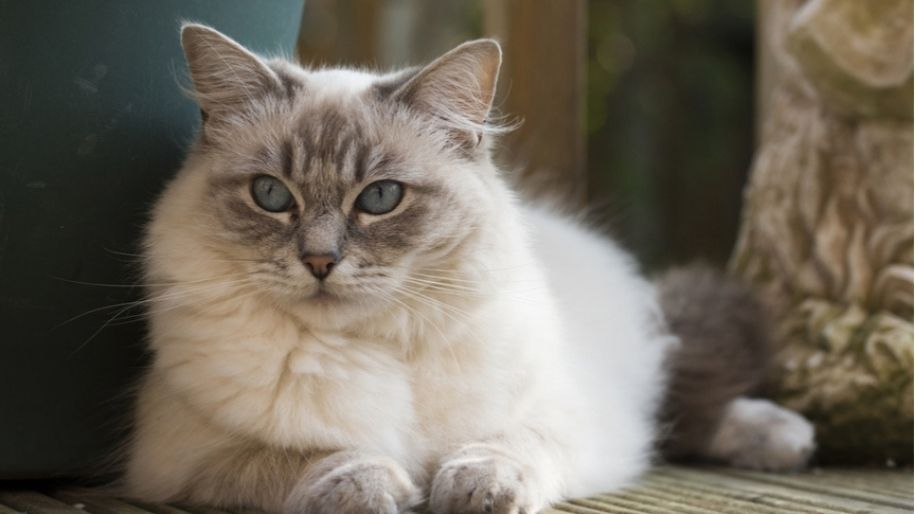PET HEALTH
About 15% of cats have some type of heart disease, and heart murmurs are one of the ways veterinarians might detect it.1 But how do you know if your cat has a heart murmur?
Keep reading to learn more about heart murmurs in cats, including symptoms to look for, how heart murmurs are diagnosed and treated, and how a MetLife Pet Insurance policy could help.
Heart Murmurs Can Be Scary. Vet Bills Don’t Have To Be.
What Is a Heart Murmur in Cats?
A heart murmur is an abnormal sound that can be heard when listening to the heart with a stethoscope. Heart murmurs can be benign, or they can indicate structural issues in the heart, like heart disease.2
Heart murmurs are observed when “whooshing” or extra heart sounds are present in addition to the normal sound of blood flow in the heart.3 If your vet hears a murmur when listening to your cat’s heart, they may order an X-ray or echocardiogram — also called an ultrasound of the heart — to figure out the cause of the heart murmur and the best course of treatment.2
Heart murmurs in cats are classified by their intensity and graded from I to VI. Grade I heart murmurs are quiet, may not be observed each time a vet tries to listen, and are usually confined to one area in the chest. But a Grade VI murmur is loud and strong enough that it can be observed by placing your fingers or ears anywhere on a cat’s chest.2
Is my cat’s heart murmur serious?
Not all heart murmurs are cause for concern. Sometimes, heart murmurs can be “innocent.” An innocent murmur, also called a physiologic murmur, means your cat doesn’t have any kind of heart disease — the heart murmur is simply present without affecting the cat’s health.2
However, heart murmurs may also indicate heart disease in cats. It could be congenital heart disease, meaning the cat was born with it, or something they developed later in life as an adult cat.2
What Causes Heart Murmur in Cats?
The most common type of cat heart disease, which can cause a heart murmur, is hypertrophic cardiomyopathy (HCM). This condition causes the muscle of the heart’s main pumping chamber to become thicker than a normal chamber. HCM can lead to potentially deadly complications, including cat congestive heart failure.4
Other causes of heart murmur in cats include:2
- Anemia
- Infection
- Parasites, such as intestinal worms
- Pregnancy
- Obesity
- Hyperthyroidism
- Ventricular septal defect (VSD)
- Atrial septal defect (ASD)
It’s also important to understand that not all heart murmurs are the same. Echocardiography will show your vet the severity of your cat’s heart murmur, and additional tests can help determine what’s causing it.2
Symptoms of Heart Murmur in Cats
When a cat has a heart murmur caused by structural heart disease (like HCM), they will likely display symptoms. Some of those clinical signs include:2
- Lack of appetite
- Weight loss
- Breathing issues
- Lethargy or weakness
- Pale gums
- Stunted growth in kittens
If your cat has any combination of these symptoms, they should be seen by a vet as soon as possible.
Heart Murmur Treatment in Cats
Innocent heart murmurs may not require treatment. Your vet might simply continue monitoring your cat over time to make sure no other issues arise. For example, in young kittens with a low-intensity murmur, your vet may want to check them again to see if the heart murmur disappeared on its own.2
However, if the heart murmur is more pronounced or your cat has a weak heart rate, the murmur may be due to HCM or another cardiac disease. Your vet may order blood tests and other diagnostics to determine the underlying cause. From there, treatment could include medication and a specialized diet, but this will ultimately depend on the specific disease.2
MetLife Pet Insurance Can Help With the Costs of Your Cat’s Heart Murmur
Learning your cat has a heart murmur can be scary, especially if it’s due to heart disease. Veterinary bills piling up can add another level of stress to the situation, but a cat insurance policy from MetLife Pet could help.
For example, take Pete, a 4-year-old cat from Virginia. His owner noticed he wasn’t eating and was more lethargic than usual, so they took Pete to the vet. An exam revealed a heart murmur. More tests were ordered to figure out the cause of the murmur so treatment could begin as soon as possible. Pete’s pet parent received an $850 vet bill, but their MetLife Pet policy reimbursed them for $750 of the costs.5
Interested in learning how pet insurance could cover your furry family member, so you can focus on their health instead of bills? Get your free quote today to see your custom policy price.
We Can Help Cover the Costs of Your Cat’s Heart Health
855-270-7387


